With a variety of sustainability programs available to the wine industry, it is sometimes hard to understand what each certification is all about. To help guide you, here are three tips to help you make an informed decision.
83% of Americans consider sustainability when buying food1. So, when your customers ask about sustainable wines, they can rest assured that SIP Certified wines show a farmers and winemakers dedication to responsible practices from the soil to the bottle, preserving natural and human resources.
Three Tips to Help You Choose the Best Certification Program for Your Vineyard or Winery
1. Look for a High Bar: not all certifications are created equally
Consumer Reports Greener Choices notes, “…labels should be backed by a set of meaningful standards. The standards should have requirements that go beyond the industry norm or basic legal requirements.”
Rules to achieve a certification need to be meaningful, measurable, and verifiable. A certification program should have specific environmental and social standards to carry weight within the industry and to consumers.
SIP Certified is the strictest program to assess the environmental, social, and community health of vineyards and wineries. Winegrowers are independently audited according to standards that look at sustainable practices on every level from farm labor to agriculture – from energy conservation to water quality. This breadth and rigor mean that not every winegrower could attain SIP Certified.
SIP Certified is the only program of its kind that prohibits the use of specific, high risk pesticides. This is an important factor when evaluating certification programs – not all certification programs have restrictions on high risk pesticide use. Additionally, certification requires that winegrowers implement and document cultural practices that fit into an overall sustainable management program: canopy management to reduce disease pressure; cover cropping to promote biodiversity and protect soil and water resources; extensive scouting and recording; wind measurement prior to spray applications; backflow prevention devices to protect water quality; packaging reuse to reduce waste; energy efficient lighting and motors to reduce use; community relations plans; employee development and safety programs. These are just a few examples of the nearly 200 practices prescribed in the Standards (rules). To attain SIP Certified, a vineyard or winery is awarded the certification by complying with all program requirements as well as achieving a minimum of 75% of the total available points.
With over 20 years of work in sustainable winegrowing, the Standards of SIP Certified have evolved and will continue to over time. The certification Standards are a “living document” – as science, technology, and research developments become available the Standards evolve. A Technical Advisory Committee reviews one to three Standards chapters annually and oversees external peer review of entire program every five years.
Since 2008, SIP Certified has met this bar requiring, non-negotiable practices based on science and expert input, independent verification, transparency, and absence of conflict of interest.
2. Third Party Verification is Key: there is no conflict of interest
76% of the public believes an independent third-party certification is the best way to verify a product’s social or environmental claim2.
It is not enough for a winegrower to make a claim of sustainable practices – these claims must be verified by an independent inspector with an in-depth records and onsite inspection. Gaining sustainable certification from a third party allows for marketplace authenticity.
The process for ensuring compliance with the rigorous SIP Certified Standards (rule) and is multi-pronged: Winegrowers must meet over 100 requirements and implement practices to achieve 75% of the total available points. Participants must implement and document each Standard and have practices verified through annual independent records and on-site inspections.
Properties receive final approval from an independent Certification Advisory Committee (CAC) that is comprised of government, academic, and industry professionals with a commitment to program integrity. This committee votes on anonymous inspection reports to determine eligibility for certification.
Since 2008, SIP Certified has set the bar for sustainable winegrowing. The certification seal earned and placed on each wine bottle gives consumers confidence that what they are putting in their glass is crafted by conscious winegrowers, that have each sustainable practice third-party verified to ensure a positive impact the earth, its people, and future generations.
3. Seal of Achievement: help consumers purchase with confidence
66% of sustainable wine consumers identify eco-friendly wine at point of purchase via labels and in store information3.
Sustainability is an important issue to a large consumer group. A third-party seal, on wine packaging and marketing materials, helps inform buyers that the winegrower has gone above the industry standards to craft a product made with conscious and care.
SIP Certified’s award-winning program, rigor, and integrity have earned them the reputation of being the gold standard for sustainable vineyard and wine certification. With over 2.6 million cases of SIP Certified wines being sold on an international level, eco-wise consumers can find wines that align with their values – strict threshold for environmental and human resource protection that positively impacts more acres, wineries, neighborhoods, and natural resources each year.
Take the Next Step!
Ready to see what it takes to become SIP Certified? Head to our website to see how your practices line up with the SIP Certified Vineyard & Winery Standards. This free assessment helps you learn about new practices you can implement to improve your business. Plus, it lets you see the great practices your vineyard and/or winery already have in place. Do you meet all the Requirements and have at least half of the Management Enhancement points in the SIP Certified Vineyard & Winery Standards and want to get certified? Contact beth@sipcertified.org to get started.
Resources: because third party verifications are important
1Cone Communications Food Issues Trend Tracker, 2014
2Consumer behavior and sustainability – what you need to know, September 10, 2014, http://www.theguardian.com/sustainable-business/2014/sep/10/consumer-behaviour-sustainability-business
32013 Lifestyles of Health and Sustainability Consumer Trends™

